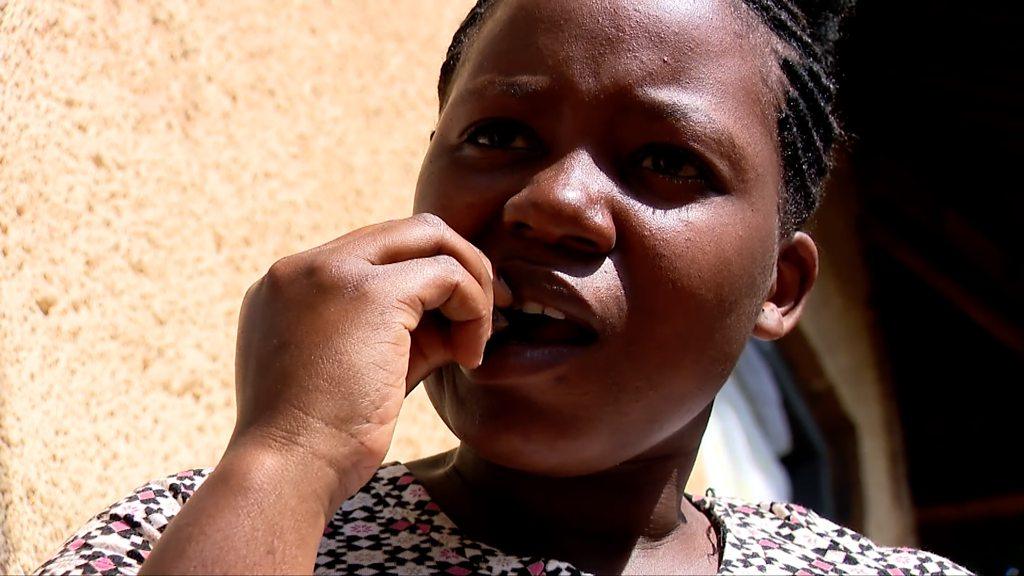Foetal alcohol spectrum disorder: Mum's fight for diagnosis
- Published
Adoptive mum Catherine Griffiths' children suffer from Foetal Alcohol Spectrum Disorder
An adoptive mum has spoken of her "lonely and isolating" journey to getting a diagnosis for her children's Foetal Alcohol Spectrum Disorder.
It was eventually discovered Catherine Griffiths' two children had the condition which can affect those whose mothers drank alcohol during pregnancy.
Just one of Wales' seven health boards has specific guidelines for diagnosis.
The Welsh Government said it was investing in new legislation for those with additional learning needs.
Ms Griffiths' adoptive children are half-siblings, born to the same alcoholic mother - there are five other adopted siblings who are with other families. Some of them have also been diagnosed with FASD.
"Someone somewhere should have said - 'we can see that you're struggling, can we help you in any way'," she said.
Ms Griffiths, from Aberystwyth, Ceredigion, has lost her hair due to the stress and worries of raising children with FASD.
"We, as parents, are getting older and I'm scared for my children's future," she said.
"We need urgent action so that everyone has heard of FASD. Everyone needs to be kinder to people that are different."
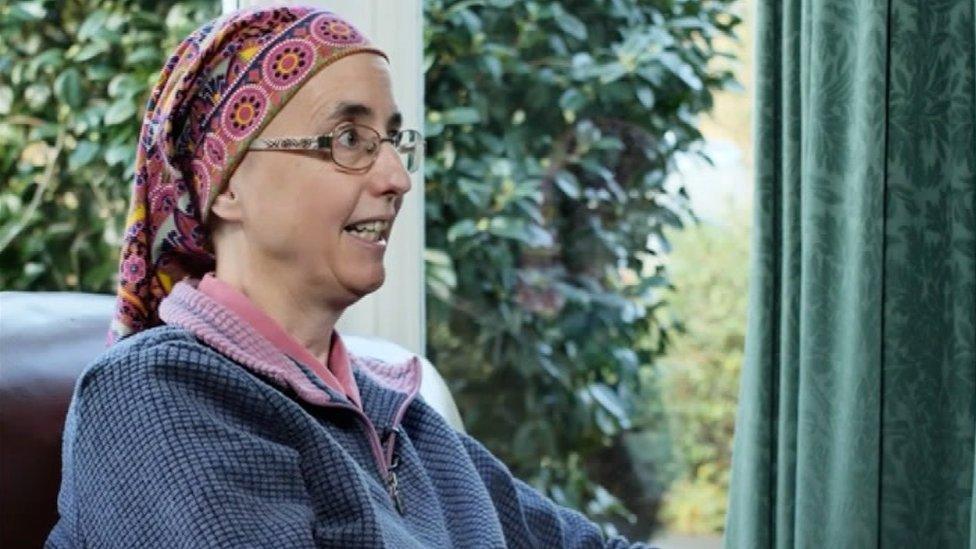
Catherine Griffiths lost her hair due to the stress and worries of raising children with FASD
What is FASD?
Those with FASD may have a smaller than average head, growth problems, distinctive facial features and behavioural problems
They are also susceptible to cerebral palsy, learning difficulties, behavioural problems, conditions affecting the liver, kidneys, heart or other organs, and hearing and sight complications
It is estimated 3.2% of babies born in the UK are affected by FASD - that is nearly four times the rate of autism

Ms Griffiths said: "We need a Wales-wide strategy to help people with FASD throughout their lives, not just as children.
"We need a centre in every health board where they can specialise in autism, ADHD and FASD."
The idea would be that such conditions could be assessed and diagnosed in one place.
"What we really need is training in schools and colleges so that teachers and support workers can learn strategies that can help," Ms Griffiths said.
"FASD means trying something different, not trying harder. Unfortunately, the current curriculum doesn't allow for that."
Kate Young, director of learning disabilities organisation All Wales Forum, said Ms Griffiths' story was not an "isolated one".
She said raising awareness was vital.
"Many children and adults who live with it are often faced with unintended discrimination due to a wider ignorance around the symptoms and a lack of understanding on how to offer support," she added.
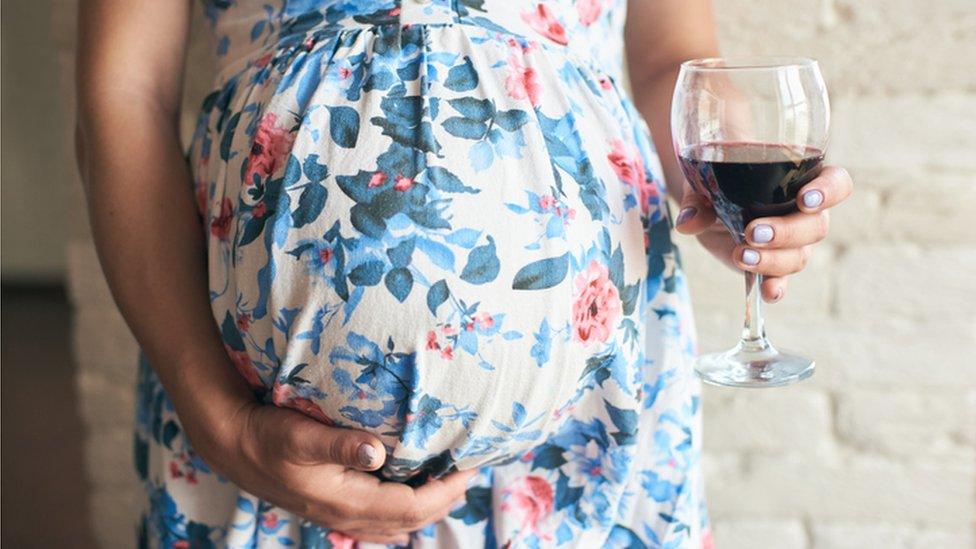
Campaigners say FASD is often misunderstood
The Welsh Government said: "Our Healthy Child Wales Programme, external sets out what support children and their families can expect from health boards to support early years health and development.
"We are also investing £20m to support new legislation for learners with additional learning needs to get the support they need, including where this has arisen as a result of FASD, autism and ADHD."
A Freedom of Information Act request showed Powys Teaching Health Board was the only board to have specific guidelines for diagnosing FASD.
- Published30 November 2018
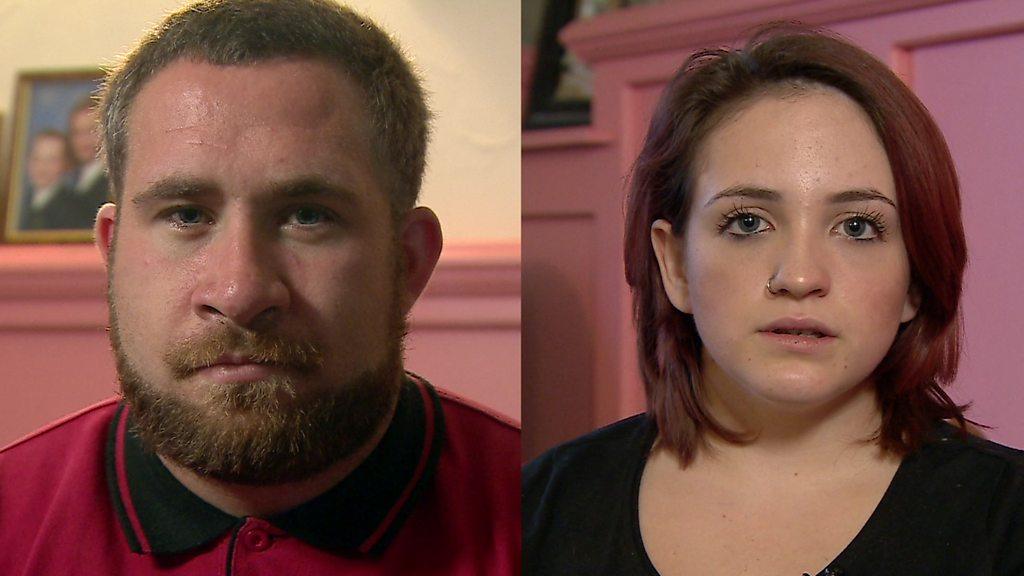
- Published19 June 2019
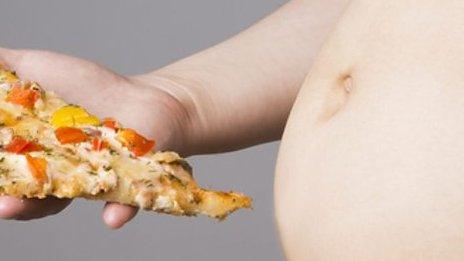
- Published20 October 2019
